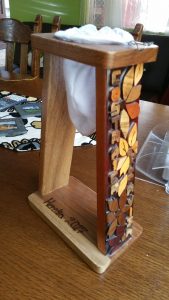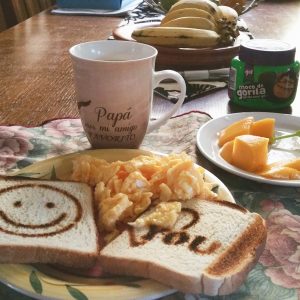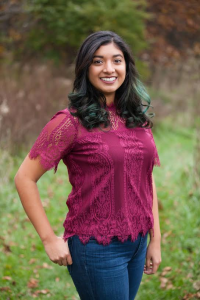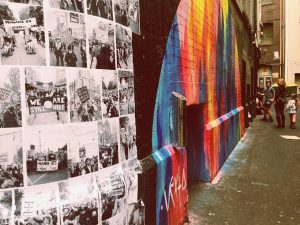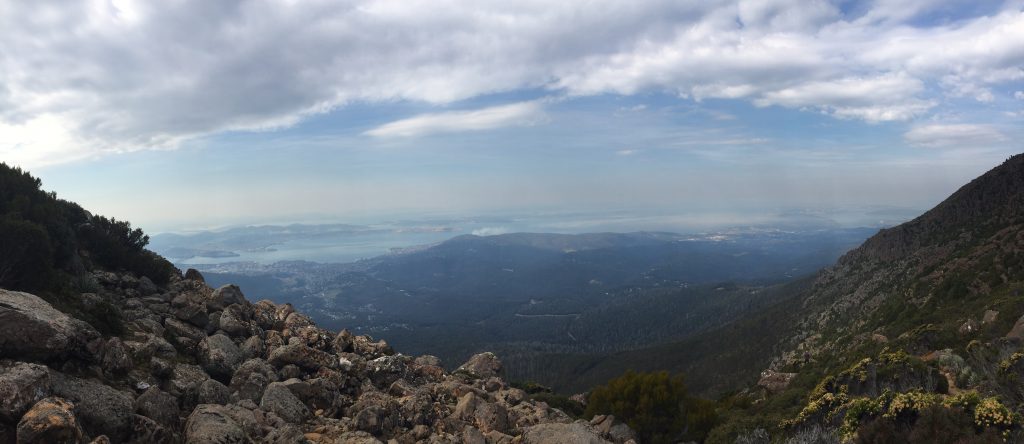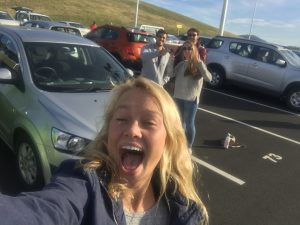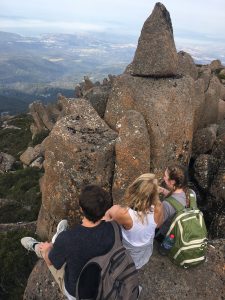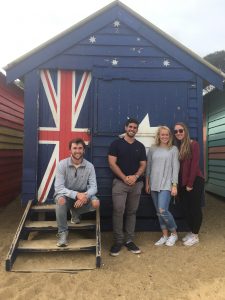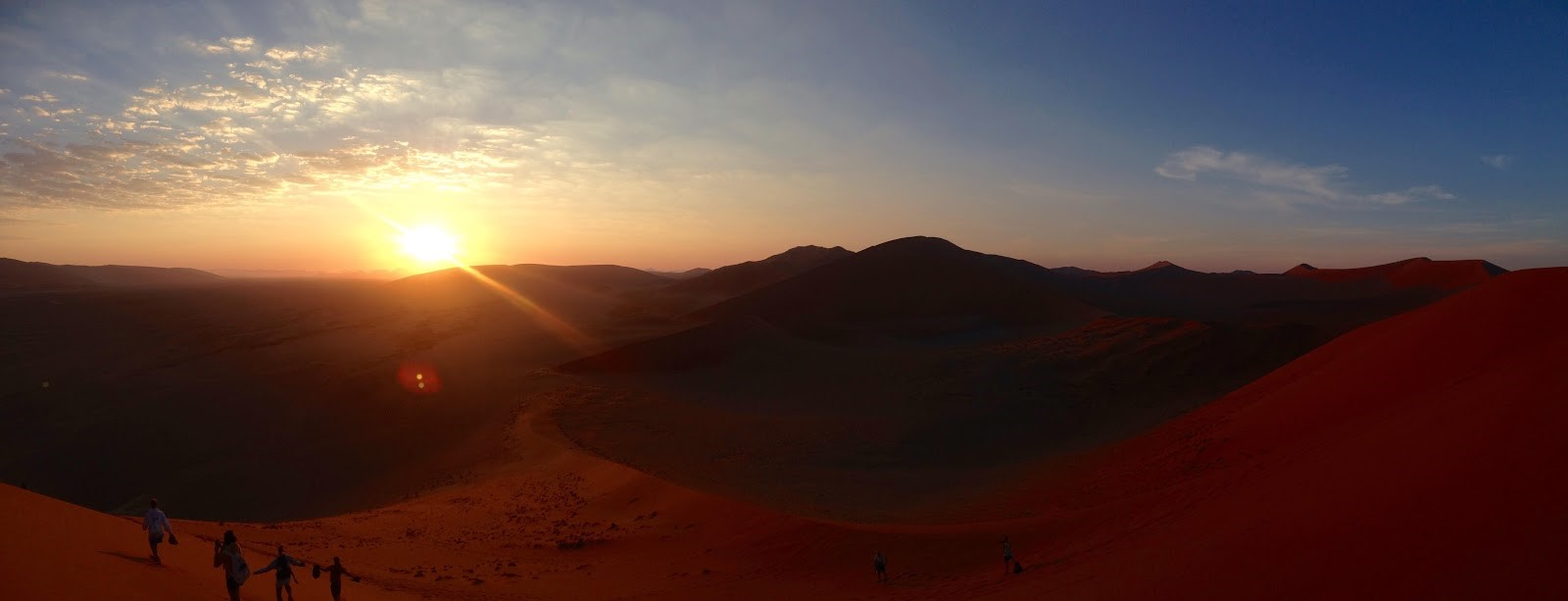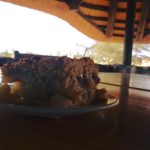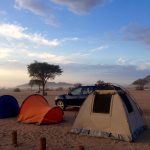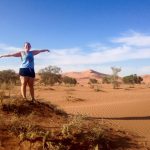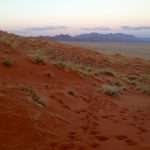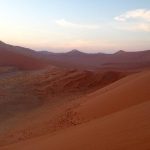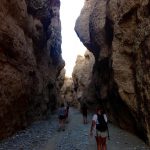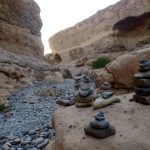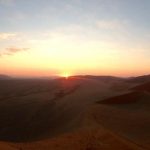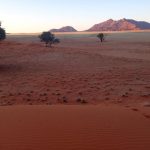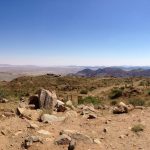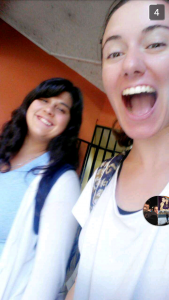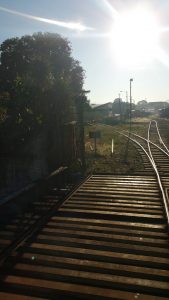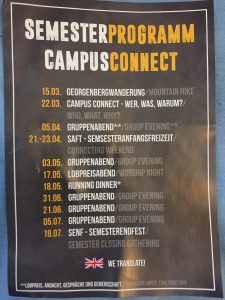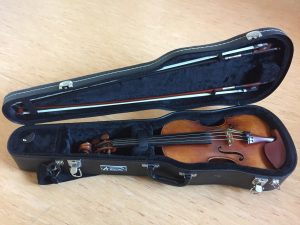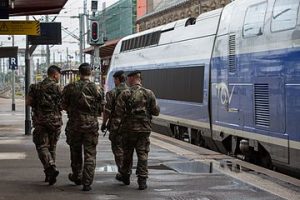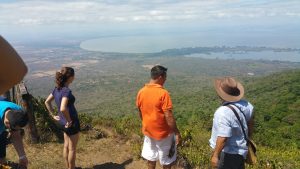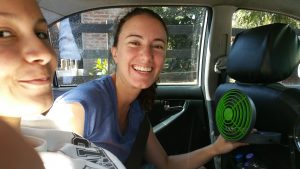Blogger: Katie Karstensen
Program: Windhoek, Namibia
I had the privilege this past week to spend time with a family in Soweto, a neighborhood of urban Windhoek, at Pashukeni Kindergarten. My household consisted of “Meme,” the fantastic, inspirational, independent principal as well as matriarch of the family, and one older sister and brother. My host brother, at 24, is currently studying at University, and my sister helps with the kindergarten and has two children, one boy (age 8), and one daughter (age 2). Meme also took my youngest brother (age 7) into her home as an orphan when he was a young child. Besides the property holding a Kindergarten school, Meme rented out the other buildings for community members to live in, so I felt as if I were meeting new people every day. The setup of the property was interesting as I’m used to one central house and perhaps a garage as the only buildings. But there were many small buildings making up a collective of rooms with the yard almost acting as the living room or the main sitting room.
I had the blessing of being there for Meme’s birthday. We had her favorite meal, which happened to include a dish very similar to one of my favorite dishes from home. They didn’t have a name for it, but as soon as I tasted it, I started tearing up because it tasted almost exactly like my mom’s German potato salad, a dish we make every holiday, family reunion, and birthday. It is the food my mom makes for me to take to take back to school with me, so I eat well for the week. It was my favorite dinner while I was there. The simple potato dish led to a conversation where I shared some of my own family’s traditions while Meme shared important traditions to her and her life story with me. Meme did not grow up with an extensive education, but she had a job at a primary school as a janitor. She said she would do her work, but she would always make time to play with the children. Her supervisor told her if she did not stop playing with the children and neglecting her cleaning duties, he would fire her, but Meme continued her work, visiting with the children as normal, but hid from her supervisor to not get in trouble or fired. Meme grew tired of the supervision at her place of work, so she told them she would be leaving to open her own Kindergarten school. The rest of the staff responded by laughing at her as she left, not believing she would be able to begin her own business, especially without an education, money, or even a place to begin such an establishment.
Meme began with nothing but has now taught over one hundred children, and has multiple classrooms and teachers. Her business has been rapidly growing over the years, always with children as a priority in her life. Next year she plans to extend her Kindergarten into a pre-primary through fifth-grade school. She’s done a lot of hard work to get where she is today and received support from many people over the years. She returned to her original place of work to tell them about her kindergarten, and they again responded by laughing at her, not believing she could have done it. People ask her all the time how it’s happened, and who is the man of the household behind all of these operations. They accuse her of having a secret man or lover who gives her the money and land that she needs to continue her business, but it isn’t true. Meme told me if people have enough of a problem and keep bothering her about who this man is, she points to her oldest son. She says because he’s tall people seem to believe her and are satisfied. I’m honored to have been able to be in the presence of such a strong, independent woman. She is also very involved in the political system. While I was there for the week, I went with my host brother to pick up Meme from a SWAPO party meeting. She told us about how difficult it is to make all the much-needed changes that are happening in the country, but they’re doing what they can to solve them. At the end of the week, when Meme was showing me pictures from her life, she even shared a picture of her and the first president of Namibia, saying that they are good friends and were very close to one another for a time. I’m so thankful to have met Meme. When I left, she kept telling me never to forget her, to come back and visit whenever I’m able, and that I would always have a job as a teacher at her kindergarten.
I spent most of the week with my host brother. He is studying at University and currently doing an internship working on the newest skyscraper in Windhoek that can be seen right across from the Independence Museum. He is very intelligent and curious about the culture of the United States and my perceptions of that culture. Some of his pre-conceived notions about the United States were highly comical. When his family began hosting students, he was surprised to host a Chinese and black student, originally thinking everyone from the U.S. was white. He was also surprised when I braided my hair, telling me he thought white people didn’t know how to braid. My host brothers were also surprised at the concept of freckles, how you could see them on my arms, how you could see my mosquito bites, and how my skin reacted to being in the sun. They couldn’t believe I didn’t eat pop (cornmeal mixture we had with everything) with my meals and asked what I ate instead. They also found it odd that my family owned our own cows and that we did not slaughter our own cows but instead we bring our cows to a facility and pick up the meat a few days later.
My family was very open to whatever activities and conversations the week would bring. Every day the family would get together and asked about each other’s days, jobs, and classes. My religion class brought up a conversation with my host family. We shared in class a presentation about how our religion or faith had affected our self, family, community, country, and the world. My host brother asked to hear the presentation, which led into a conversation about my personal faith journey and, in turn, my host family’s relationship with religion. Meme spoke very critically of the church and some of the extreme actions they’ve been a proponent of over the years including prosperity gospel. On other occasions Meme would talk about being successful only by the grace of God, and being thankful to God for all he’s done with her, hoping God would keep me safe in His arms while I continued to travel around the world. On Sunday, I thought all of my family would go to church. Meme even told me what I should wear to church and approved my outfit to make sure it would be okay, but only two of my host brothers and I went to church. The three and half hour long service was a lot different than my home church, including all being in Oshiwambo, but thanks to Lutheran liturgy, I was able to guess what was going on for some parts of the service. It may have been one of the largest church services I’ve been to, with a congregation well above one thousand. It was the definitely the largest place that I’ve been in where I was the only white person. My younger host brother went to Sunday school during the service, and when it ended early, he came and found us in the congregation to sit with us. With such a big congregation, my older host brother asked how he was able to find us, and he simply replied, “Because of Katie, duh.” A woman mostly led the church service, and when I asked if it was the pastor, my brother said no. The only part led by a man was the pastor giving the sermon. Another interesting part of worship was a blessing ceremony for all the marriages that happened so far this year. Likius translated saying the blessing consisted of telling husbands to love their wives, and wives to respect their husbands. I asked why men weren’t told to respect their wives, and Likius replied, that they could if they wanted, but it wasn’t the same expectation as for women.
My homestay was filled with a lot of hospitality, family, and compassion. I felt very ill the last day of my homestay, and my family took care of me as one of their own, but it didn’t feel any different from the rest of the week. They gave me an opportunity to be a part of their family, and we shared a lot with one another. I feel like I have a lot more to learn from them, and already have plans to go back and visit my family and spend more time with them before I return to the U.S.
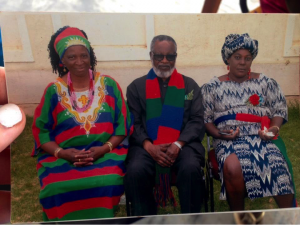
My host mother (on the right) with the President of Namibia (center).
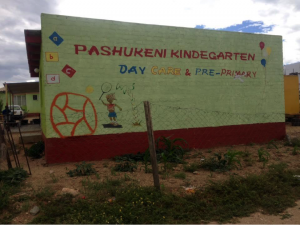
Pashukeni Kindergarten
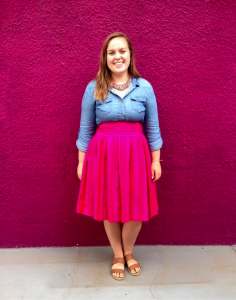
Traditional Oshiwambo skirt and necklace my host mother made for me
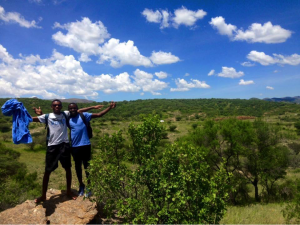
My host brother and cousin on our hiking trip
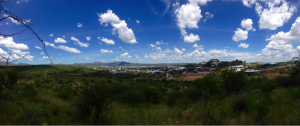
View from the side of a mountain in Windhoek
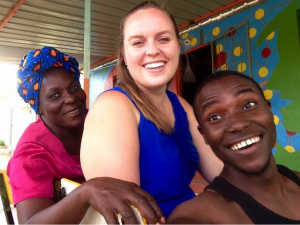
Meme (mom in Oshiwambo) and my oldest host brother
— Katie
